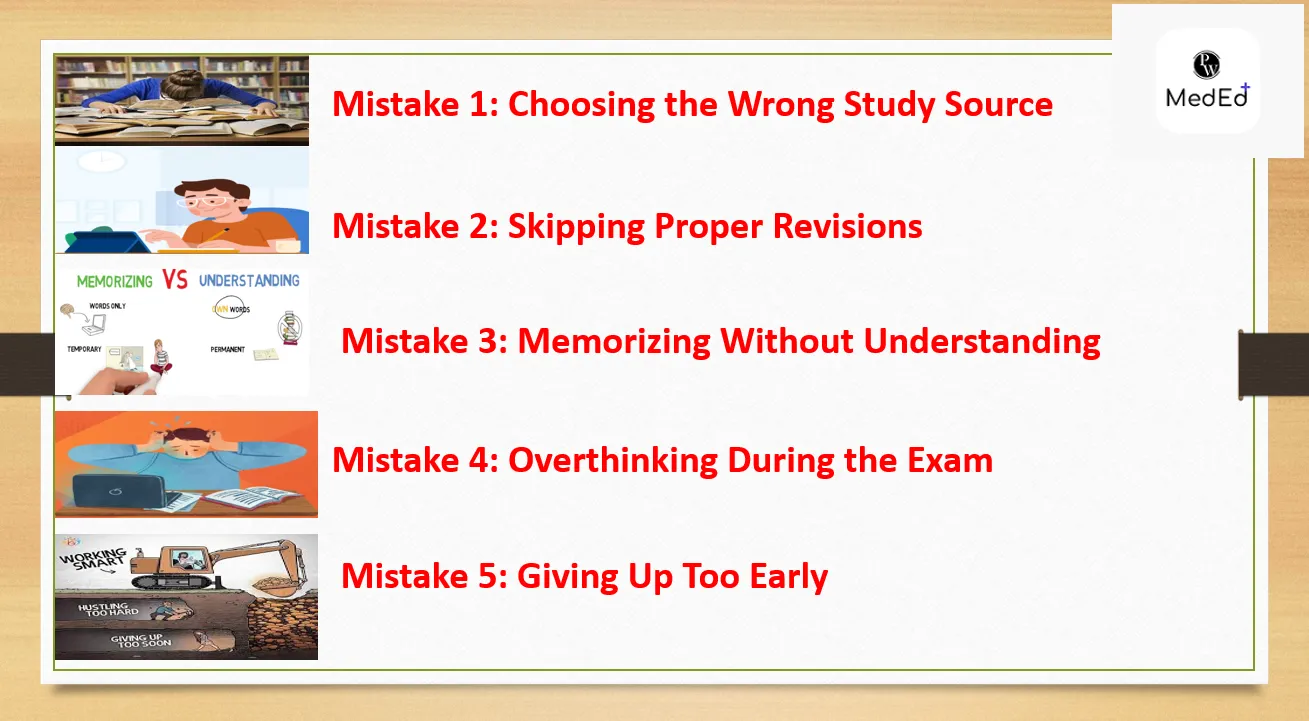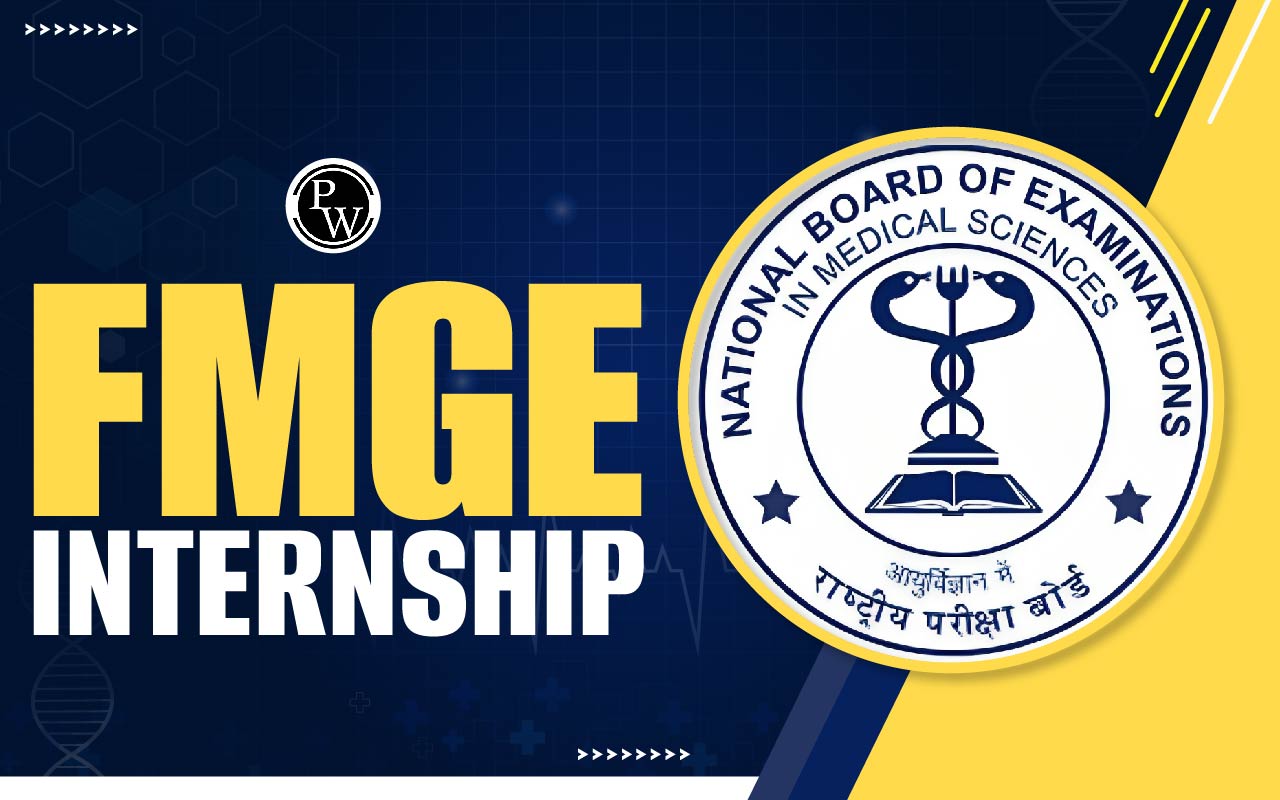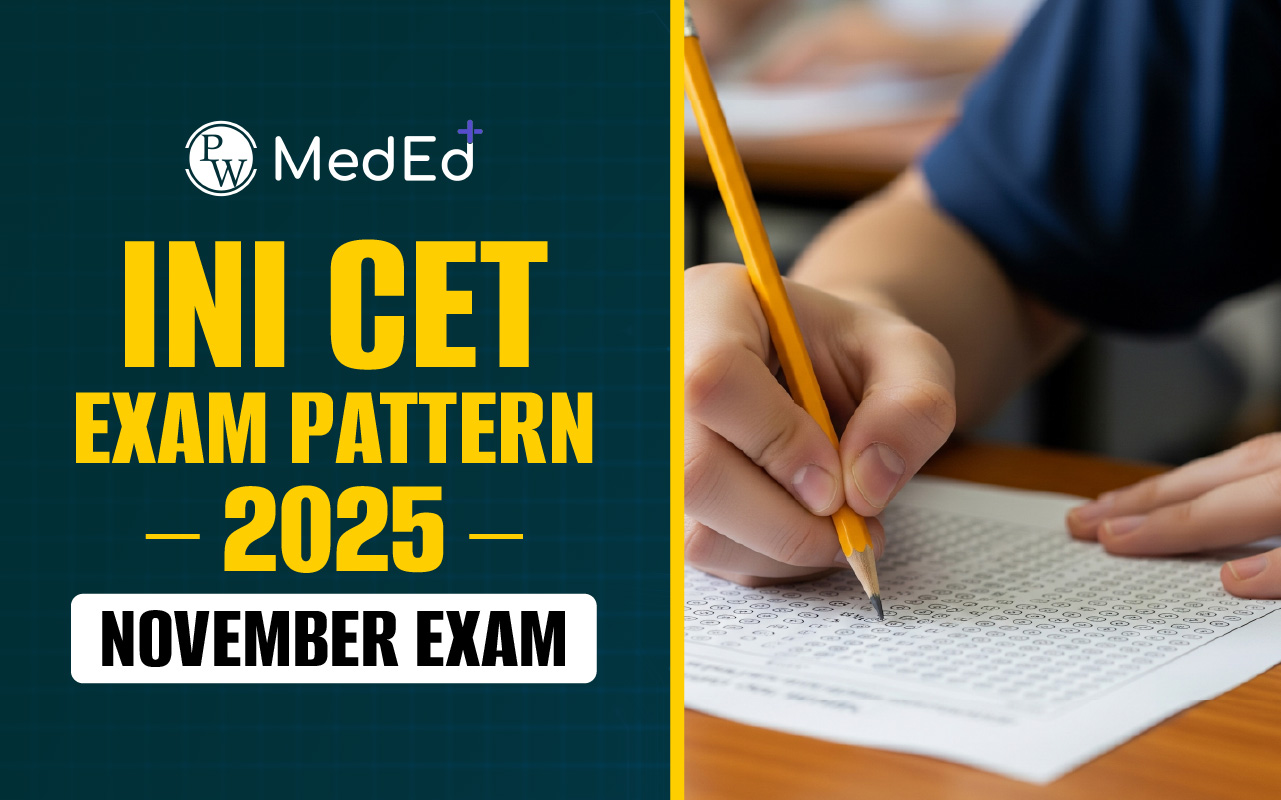Most Common Mistakes FMGE Aspirants Make in the Final Weeks And How to Avoid Them
In the final weeks leading up to the FMGE, many aspirants make critical mistakes that hinder their chances of success. These include choosing the wrong study material, failing to revise adequately, and neglecting the importance of conceptual clarity in subjects. Overthinking answers during the exam and giving up too soon also contribute to poor performance. To avoid these pitfalls, it's crucial to select the right resources based on available time, focus on revising key concepts, and stick to your initial answer unless there's a solid reason to change it. Maintaining consistency, staying confident, and continuing to revise until the exam day can make a significant difference in achieving the desired results.

Mistake #1: Choosing the Wrong Study Source
How to Avoid It: Match Your Resources to Your Timeline
Many FMGEs prepare with bulky NEET PG or INI-CET resources, mistakenly thinking that a tougher book equals a better score. But FMGE isn’t a competitive ranking exam—it's a qualifying one. Time is your most precious currency.
What you should do:
- Use concise, FMGE-specific resources (like rapid revision notes, high-yield MCQs, or targeted YouTube series).
- If you have less than 6 months, don’t fall for FOMO. Stick to one reliable source you can revise multiple times.
Mistake #2: Skipping Proper Revisions
How to Avoid It: Master the Art of Multiple-Round Review
Revision isn't a luxury—it's a necessity. Many aspirants feel they’ve “covered” a topic, but when exam day comes, they can’t recall key facts or make clinical connections.
Your revision roadmap:
- First round: Complete your reading and make notes.
- Second round: Focus only on weak and high-yield areas.
- Final days: Revise volatile topics you’ve consistently struggled with.
Remember: No revision = No retention.
Mistake #3: Memorizing Without Understanding
How to Avoid It: Build Conceptual Clarity for Application-Based Questions
The FMGE isn’t just about facts—it’s about applying what you know. Rote memorization works for some direct questions, but it fails miserably when you're faced with multi-layered clinical MCQs.
What to focus on:
- Acid-Base Disorders (ABG)
- Cardiac Cycle & Valvular Disease
- PFT interpretation
- Heart Blocks and JVP
- Thyroid Function Tests
Tip: Don’t shy away from asking mentors or faculty to list the most important conceptual topics in each subject.
Mistake #4: Overthinking During the Exam
How to Avoid It: Trust Your Gut, Not the Panic
Changing your answer at the last minute is a silent score-killer. Studies (and FMGE mentors) confirm that your first instinct is often correct 60% of the time.
Battle strategy:
- If you’re unsure but reasonably confident—go with your first answer.
- Avoid rechecking old questions unless you’re absolutely sure there was a mistake.
- Lack of conceptual understanding leads to confusion—build clarity to eliminate second-guessing.
Mistake #5: Giving Up Too Early
How to Avoid It: Stay Mechanical Until the Last Hour
Many students lose hope 2–3 weeks before the exam. Some even stop studying entirely. But the truth is, last-minute persistence often pays off.
Here’s your mindset mantra:
- Stay mechanical, not emotional. Keep going.
- Give yourself permission to feel overwhelmed—after the exam, not before.
- Even if you feel underprepared, don't let the exam defeat you before you enter the hall.
BONUS: For Students Stuck at Score 145–149
You’re almost there. Here’s what to do in your final push:
- Stick to your original study source. Don’t switch.
- Focus on mock tests and application-based MCQs.
- Target high-yield, low-effort subjects like PSM, dermatology, radiology, anesthesia.
- For heavier subjects like medicine and surgery, do rapid revision only.
Final Takeaway: Smart Strategy > Sheer Effort
The FMGE is not about being the smartest person in the room. It’s about being the most strategic. By avoiding these most common mistakes FMGE aspirants make in the final weeks, you can easily gain an extra 20–25 marks—enough to shift from failing to passing.
Remember:
- Choose the right study source.
- Revise again (and again).
- Understand, don’t just memorize.
- Stop overthinking—trust your prep.















